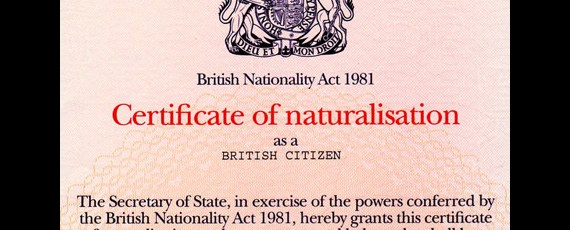Published: 14 January 2013

In December 2012, the UK Border Agency (UKBA) changed the rules relating to good character when applying for naturalisation. Previously, convictions spent under the Rehabilitation of Offenders Act need not be disclosed. However, it is now the case that all convictions or character issues must be disclosed on the application form. This could possibly even apply to fixed penalties in some cases – see below. These changes do not affect those who applied before 13th December 2012. Anyone who applied on or after 13th December 2012 will now be subject to the new policy. This article addresses only what may be seen as the criminal aspect of the character requirement and does not deal with other issues, for example hospital orders or bankruptcy. Dealing, firstly, with the clearest issues: If you have ever been convicted of an offence and sentenced to 4 years or more in prison, then your application will not be successful. You will never qualify for British Citizenship. If you have been convicted of an offence and sentenced to between 12 months and 4 years imprisonment, you will not qualify for citizenship until 15 years after the end of your sentence. If you have been convicted of an offence and sentenced upto 12 months imprisonment, you will need to wait for seven years from when your sentence ends. Non-custodial sentences attract a waiting period of three years. These include: 1. Fines 2. Cautions (unless these relate to sexual offences or there are several cautions) 3. Community Sentences & Orders Offences committed outside the UK The UKBA will equate these to offences committed within the UK. The sentence received will always be the starting point and will follow the guidelines I’ve set out above. Fixed Penalties These are issued in the UK for minor matters such as dropping litter. These will generally be disregarded unless there are numerous fixed penalties within a 12-month period. The main thing to remember when completing the character section of the naturalisation form is the new requirement to disclose all spent and unspent convictions. If in doubt, disclose it! It would be better to disclose something that may be irrelevant than not disclosing it and risk facing an accusation of dishonesty. By Steven Grosvenor Google
Filed In:
Contributor:
About the author: This article was written by Steven Grosvenor who is an immigration lawyer and head of International Services at Waldrons Solicitors (www.waldrons.co.uk) based in the West Midlands and Worcestershire.Waldrons Solicitors Limited is authorised and regulated by the Solicitors Regulation Authority. SRA number 564439

